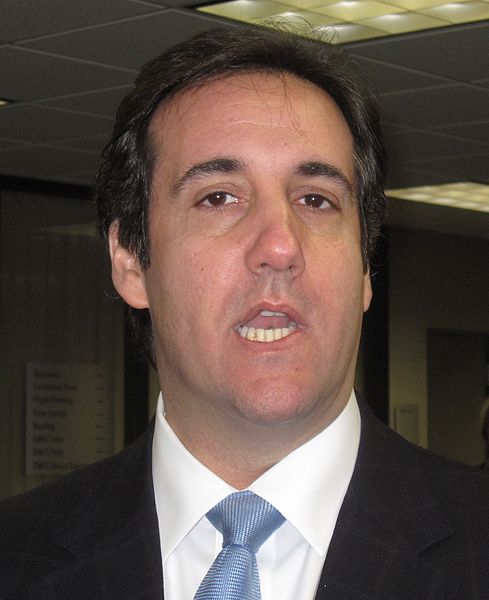Trump attorney's statement that he paid Stormy Daniels $130K raises ethics questions

Michael Cohen
Michael D. Cohen, Donald Trump’s personal lawyer, said Tuesday that he used his own money to pay a porn actress $130,000 who is alleged to have claimed to have had an affair with Trump before he became president. But the statement, made to the New York Times, has raised ethics questions.
The payment made to Stephanie Clifford, known professionally as the pornographic movie actress Stormy Daniels, was first reported in January by the Wall Street Journal. The payment was made shortly before the 2016 election, the Washington Post reports. Cohen has previously said that Trump denied having an affair with Clifford.
But some attorneys—and an article in Above the Law by its executive editor—question whether such a payment would violate New York State Court’s Rules of Professional Conduct. Rule 1.8(e) prohibits attorneys from advancing or guaranteeing financial assistance to clients related to considered or pending litigation, with some exceptions for court costs.
Some New York lawyers who do attorney discipline work believe the rule prohibits what Cohen said he did. Others aren’t so sure and say that the restriction was created to prevent lawyers from bidding on clients and encouraging people to file meritless lawsuits in exchange for payments. Cohen refused to answer other New York Times questions, including why he paid Clifford or whether Trump was aware Cohen made the payment.
“It would definitely violate the strict letter of the rule,” says Nicole Hyland, a partner with New York’s Frankfurt Kurnit Klein & Selz whose practice centers on legal ethics, professional responsibility and legal malpractice. “What’s not clear is if this type of conduct is what the rule was intended to be concerned about.” She says Rule 1.8(e) deals with clients “in connection with contemplated or pending litigation.” Regarding Trump and Clifford, Hyland notes that it isn’t clear there was anticipated litigation.
“If it was a payment in aid of a settlement, it doesn’t address the policy argument about not wanting lawyers to be paying and funding litigation,” Hyland says. “This is not litigation, it’s the opposite of litigation. Like everything with Trump, he sort of creates a new reality.”
Ronald Minkoff, another Frankfurt Kurnit partner, says that as the matter was reported, a $130,000 payment would constitute financial assistance to the client under Rule 1.8(e).
Bar regulators take the rule seriously, Minkoff says. Paying clients creates a conflict of interest because the attorney would have a financial stake in the outcome, and clients should select attorneys based on their skills rather than who will give them the most financial assistance.
“The lawyer’s conduct may show the kind of loyalty the president prizes, but it is not the kind of conduct we as a profession should encourage or condone,” says Minkoff, who heads Frankfurt Kurnit’s professional responsibility group.
Many media groups, including the New York Times, have reported that Cohen paid Clifford “out of pocket,” writes Orin Kerr at the Volokh Conspiracy, published by Reason.
But Cohen’s statement, posted on Twitter by BuzzFeed News, doesn’t appear to use the term “out of pocket,” writes Kerr, a professor at the University of Southern California Gould School of Law. Cohen wrote that he used his personal funds to “facilitate a payment” to Clifford. In the statement, Cohen wrote that neither the “Trump Organization or the Trump campaign” was a party to the transaction, and neither reimbursed him for the payment directly or indirectly.
“He’s not making any statement about whose $130,000 was paid,” Kerr writes. “For example, if it took Cohen a few hundred dollars to set up an entity to pay Daniels and to wire someone else’s $130,000 to her, then he would have been using his own personal funds to facilitate that payment. Sending on the money would be a transaction between two parties, Daniels and the entity Cohen set up, and there would have been no need to reimburse Cohen $130,000 because it wasn’t Cohen’s money that was sent,” Kerr writes.
Cohen, who according to the New York Unified Court System is a Western Michigan University Thomas M. Cooley Law School graduate admitted to practice in 1992, writes in the statement that he has “proudly served” as Trump’s lawyer for more than a decade.
“The payment to Ms. Clifford was lawful, and was not a campaign contribution or a campaign expenditure by anyone,” his statement reads.



